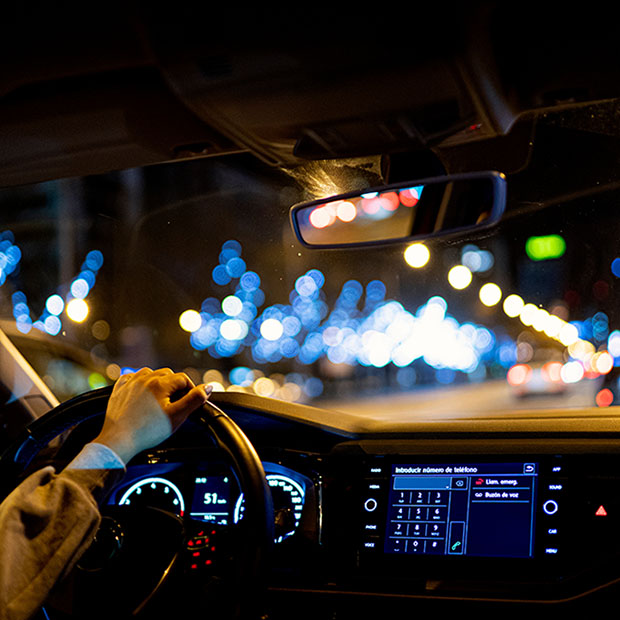Is your vision affecting your night driving?

In the shorter days of winter, many of us find ourselves driving in the dark more frequently.
This seasonal shift can be particularly challenging for those with less-than-perfect vision, making night driving not only more difficult but also potentially hazardous. However, with a few precautions, you can greatly enhance your safety and that of others on the road during these darker months.
Understanding the Challenges of Night Driving
Driving at night introduces unique conditions that alter how we perceive the road. Shadows deepen, and the glare from oncoming headlights can obscure visibility. These factors can challenge even those with excellent eyesight. Recognizing when these conditions become too overwhelming is crucial; sometimes, the safest option is to avoid night driving altogether.
The Impact of Aging on Night Vision
Night vision typically diminishes with age due to physiological changes in the eyes. The rods, which are crucial for seeing in low-light conditions, decrease in number, while the lenses of our eyes can stiffen and cloud, exacerbating glare and making it harder to focus. These changes underscore the importance of being proactive about our visual health as we age.
Monitoring Changes in Eyesight
If you notice symptoms like blurred vision, increased sensitivity to light, halos around lights, or eye fatigue, it might be time for an eye exam. These signs can indicate underlying issues that, if addressed promptly, can improve your driving safety at night. Regular checkups allow for adjustments in your vision correction solutions, boosting your confidence and ability on the road.
Tips and Aids for Safer Night Driving
There are several strategies to mitigate the difficulties of night driving:
- Night Driving Glasses: Special glasses designed to reduce glare and enhance contrast can be helpful.
- Preparation: Ensure you are well-rested before driving at night to keep your reflexes sharp.
- Diet: Incorporate eye-healthy foods like carrots, sweet potatoes, and spinach into your meals to support good vision.
- Vehicle Maintenance: Keep your vehicle’s windshields, windows, and headlights clean to improve visibility.
Deciding When to Avoid Night Driving
Sometimes, the best decision for safety is to limit or stop driving at night entirely. Recognizing when you’ve reached this point can be difficult, but it’s essential to prioritize safety over convenience.
Leverage Your Optometrist as a Resource
If night driving has become a concern, scheduling an eye exam is a crucial first step. Our team is ready to help you understand the challenges you’re facing and explore solutions to enhance your night driving capabilities. We’re committed to ensuring your vision is well-suited for night driving and all other activities.
We look forward to helping you ensure your vision is prepared for the challenges of winter driving and beyond.